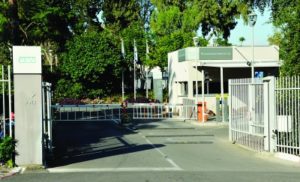Teva Pharmaceutical Industries (NYSE & TASE: TEVA) confirmed last week that the generic drug giant would lay off 1,750 workers in Israel and close at least one local factory.
This as part of what the company called a “comprehensive restructuring plan to significantly reduce its cost base, unify and simplify its organization and improve business performance, profitability, cash flow generation and productivity.”
The company also said it would cut 25% of its global workforce, or about 14,000 jobs. The majority of the reductions are expected to occur in 2018, with most of the affected employees being notified within the next 90 days.
The company said the move would reduce Teva’s total cost base by $3 billion by the end of 2019, out of an estimated cost base for 2017 of $16.1 billion.
More than half of the reduction is expected to be achieved by the end of 2018.
The company expects to record a restructuring charge as a result of the plan of at least $700 million, mainly related to severance costs, with additional charges possible following decisions on closures or divestments of manufacturing plants, R&D facilities, headquarters and other office locations.
Teva stressed that senior management would not receive bonuses for 2017 and that shareholders would not receive dividends. Teva’s President and CEO Kåre Schultz added that the plan would restore the company’s financial security and stabilize its business.
Following the announcement, Prime Minister Benjamin Netan-yahu spoke with Schultz and asked him to minimize the blow to Israeli workers, and to ensure that the company remains an Israeli one.
Officials from Histadrut, Israel’s labor federation, called the an- nouncement a “tough blow” to the Israeli economy.
A half-day general strike was held on Sunday, Dec. 17.
For the last two decades, Teva had been making huge profits, mainly from its groundbreaking multiple sclerosis drug Copaxone.
Developed by Prof. Ruth Arnon of the Weizmann Institute of Science in Rehovot, together with Prof. Michael Sela and Dr. Dvora Teitelbaum, the drug was said to earn Teva more than $1 billion a year.
The successful drug was said to have relatively few side effects and provide much relief for patients with the disease.
Money came rolling in for Teva, as the drug was protected from being copied in most places in the world and in particular by the FDA certification in the US.
In 2014, Teva sold $4.2 billion worth of Copaxone around the world, but its patent expired in 2016.
Also last year, Teva spent $40 billion to purchase Actavis, the generic unit of the huge Irish drug company Allergan.
Edgar Asher contributed to this story.

















